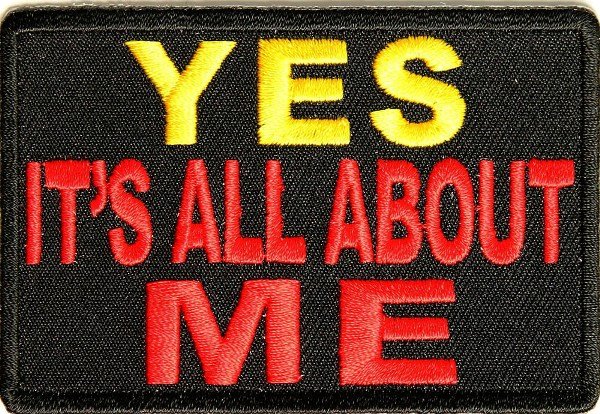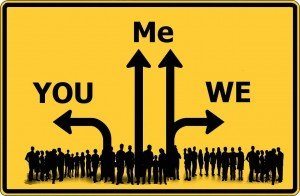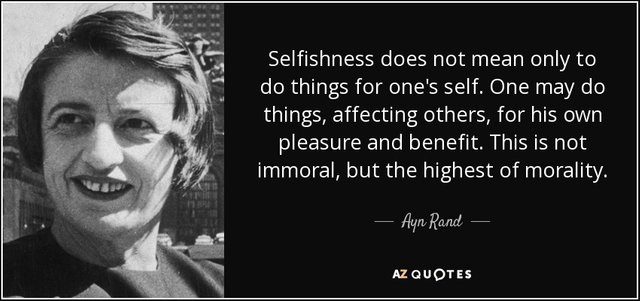
It wasn’t too long ago, while I was taking the first steps of my medical career, that I was being troubled by various thoughts regarding my motives and purpose in the field of medicine. When I was a child, I remember being asked very frequently why I wanted to be a doctor. My answer was quick and straight forward: ‘I want to be a doctor so I can help others’. Such an innocent and admirable answer, which I genuinely meant. The importance of giving and caring for others, the virtue of being a kind and compassionate human being, had been put well into my young mind by the society itself: by my family, my teachers and by any other figures of authority that as a child I took their word as true without questioning it.

As a medical student, I felt compassion for the ill and joy and satisfaction when I saw patients getting better. After I graduated, my first job was as a junior doctor in a surgical department. It was the first time in my life that I actually had my own patients and I wasn’t just observing another doctor treating them. I was responsible for their admission, pre-surgical preparation, I would assist in their surgery and then I was responsible for their postoperative care. The patients had to come for a follow-up a few weeks after their surgery and many of them would find me in order to thank me for everything I had done for them. The feelings of joy and satisfaction were back but this time I started noticing that there was something different about them. They were not the same as the feelings of pleasure and contentment I felt by watching a sick person getting better by the work of another doctor. They were feelings of satisfaction, gratification and achievement, similar to the ones I felt right after I had passed an important exam back in medical school or when the University’s Dean came out of the examination committee’s room to announce to me that I had just become a doctor. Initially I was surprised, almost shocked. How could I have such selfish feelings which opposed the altruistic idea behind being a doctor? And how could I ever be a good doctor if my biggest motivation was self accomplishment and personal success?

I slowly started to come in terms with my ‘new’ feelings and that’s when I started noticing something that myself and my patients had in common: we were just normal human beings with our own selfish needs, looking for a way to satisfy them. The patient doesn’t come to the hospital because he wants to sacrifice his body so that a surgeon can add another operation in his résumé. He is here because he wants to get his annoying hernia fixed or have his gall-bladder removed so that horrible right abdominal pain will stop. He doesn’t let me pierce his skin with needles multiple times during the day because he wants me to practice my venipuncture skills, but he wants to have his blood analysed to make sure he is doing well. His need is to improve his health and that is the only reason why he is in the hospital. As a doctor I have the need to be successful and accomplished. I feel satisfaction every time I notice my skills improving and my knowledge expanding. It’s a profession that satisfies my financial needs, giving me money which will be used to take care some of my other needs. Empathy for other human beings is of course still there. It has been hardwired into my brain throughout our evolutionary journey as species, because this empathy towards each other was necessary to achieve the most primary and selfish need of all animals: the need to live and survive.
So we have a doctor and a patient, both coming to a hospital for their own different selfish reasons. It might sound awful, but in fact there is something beautiful arising from it. Two human beings can come together and despite having different selfish needs, the outcome will be beneficial to both of them. Despite our intentions being the exact opposite of altruistic, we find a way to satisfy the needs of each other. This raises the question: Do we really need altruism as human beings? And if we don’t, can our society prosper if all of our actions are just based on our individual self-interest?

Soon after this realisation I was lucky to find an amazing book by Ayn Rand, called ‘The virtue of Selfishness’. She challenges the way a large part of the society defines selfishness as a non-virtuous quality which characterizes humans whose only purpose is the gratification of their own desires without caring about the well being of others. Instead she prefers the much more benign definition, that selfishness is simply the concern with one’s own interests. She believes that every human’s highest value is his own life and any rational human being should take equally rational actions to achieve happiness. One of my favorite quotes from her book is the following:
‘If a man accepts the ethics of altruism, his first concern is not how to live his life but how to sacrifice it’
THE MYTH OF TRUE ALTRUISM
Altruism refers to any action which benefits the receiver of the action while for the individual performing the action it comes with a cost in pleasure, decrease in his quality of life, financial cost and in some cases even the loss of his own life. According to Ayn Rand an altruistic action can only be regarded as immoral and destructive, since it implies that a life (in this case, that of the altruist) is something to be sacrificed. Each human being comes with his own morality, his own desires and his own needs. It is impossible for any other person to know all the needs of another human and therefore it is unreasonable to try and fulfil them. Along these lines, I also believe that pursuing anything else other than our own happiness and well being is against our very own nature as human beings. Just like every other animal, we have been hardwired to do whatever necessary to ensure our survival and the passing of our genes to the next generations. Therefore self-sacrifice can never be morally superior to pursuing our own happiness and interests.

But I believe there is an even bigger question to be answered. Does altruism even exist? Many studies which have been done on altruistic behaviors of humans, show that there is always a hidden expectation of reciprocity in any action which wrongly appears to be altruistic. The ‘altruist’ unconsciously expects that his action will have a short or long term benefit to his own interest and needs. First of all the act of helping another human being causes an immediate effect of pleasure and gratification. It is almost like the brain is trying to reward you for your action and possibly to encourage you to repeat it. Well, most probably that’s exactly what it is doing. Studies have shown that as humans we are much more likely to be altruistic towards people we are close with (relatives, friends) or people we identify with. This makes perfect sense. As animals we know quite well that if our immediate social group is suffering then we are very likely to suffer as well. Just think of the domino effect the problems of a single family member can have to the whole family.
Altruistic acts are also used to improve our reputation and even increase our chances of finding a partner. When you give to others, then you indirectly give the message that your own resources are plentiful. Regarding your increased chances of finding a mate, research shows that females are more attracted to males who appear altruistic as they are more likely to provide for them and their children.

PARENTAL LOVE
Now what about the ultimate expression of altruism in the human species: the parental love? To understand it you have to think what our children actually represent. Other than the cute little human products of love making, they are also the carriers of our genes. Natural selection has made sure that for any species to be successful, its organisms must be good at two things: survival and reproduction. If humans were not good at reproducing and protecting their young, we would have been extinct as species thousands of years ago. It may be difficult to comprehend that parental love might be nothing more than just a bunch of neurotransmitters released by your brain to ‘congratulate’ you for protecting your children and ensuring the passing of your genes to the next generation, but as humans we sometimes forget our primitive nature as animals.

LIVING WITHOUT ALTRUISM
You are probably now wondering how can societies consisting of people who base their actions entirely on their self interests and needs, can ever be successful and prosperous. Well, I believe that human beings have been doing that already since the beginning of their existence. As long as a human being remains rational, then most likely, by seeking to satisfy his own needs and achieve personal happiness he will end up, directly or indirectly helping others to do the same. Don’t forget that most of the world we enjoy today, has been created by people acting on their own interests: engineers who were looking for fulfillment and satisfaction through their work, teachers and scholars who passed their knowledge to you while seeking personal success in their field, ‘geeks’ who discovered computers and the internet while trying to be satisfy their own scientific curiosity and feel gratification by building new technology. STEEMIT itself could be following the same principle. Each upvote benefits the curator, the author and indirectly the whole STEEMIT community.
Additionally, valuable, universally accepted moral duties, such as honesty and doing no harm to others originate from principles of self-interest since unconsciously we understand that such basic moral values are important to ensure that we will continue to live in an environment which is safe for us. Therefore I really do believe it is possible that selfish human beings could live in a world where their self-interests exist in a harmony which acts in such a way that it benefits the individual as well as the society as a whole.

==================================================================
Sources
https://en.wikipedia.org/wiki/Altruism
https://en.wikipedia.org/wiki/Altruism_(ethics)
Ayn Rand – The virtue of selfishness
========================================================================
For more articles like this but also on many other subjects, follow me @nulliusinverba

I just submitted a paper for publication that deals a bit with mathematical models of altruism.
The spoiler: many game theoretic models show this paradox where looking out for others actually makes things worse for society. I should probably write a post on it...
Downvoting a post can decrease pending rewards and make it less visible. Common reasons:
Submit
Interesting. Please send me that your paper... Would like to know your parameters....
Downvoting a post can decrease pending rewards and make it less visible. Common reasons:
Submit
I just uploaded the initial draft to my website. It's at the top of my conference proceedings list as "Fundamental Limits of Locally-Computed Incentives in Network Routing."
Enjoy!
Downvoting a post can decrease pending rewards and make it less visible. Common reasons:
Submit
Thanks!
Downvoting a post can decrease pending rewards and make it less visible. Common reasons:
Submit
I'd very much like to read that post. Following you.
Downvoting a post can decrease pending rewards and make it less visible. Common reasons:
Submit
I hope you do write a post on that, and I enjoyed this one by @nulliusinverba, too. Stuart Kauffman at the Santa Fe Institute, wrote something along the same lines in his book At Home in the Universe: "The results hint at something deep and simple about why flatter, decentralized organizations may function well: contrary to intuition, breaking an organization into "patches" where each patch attempts to optimize for its own selfish benefit, even if that is harmful to the whole, can lead, as if by an invisible hand, to the welfare of the whole organization..."
Downvoting a post can decrease pending rewards and make it less visible. Common reasons:
Submit
However, just because game theory says it's so doesn't mean it's so. Always good to keep that in mind :)
Downvoting a post can decrease pending rewards and make it less visible. Common reasons:
Submit
You definitely should! Looking forward to reading it
Downvoting a post can decrease pending rewards and make it less visible. Common reasons:
Submit
Great post!
I very much agree.
It irks me a bit when I hear or read that scientific societies, for example, list selflessness among their core principles.
I'm re-blogging this post.
Downvoting a post can decrease pending rewards and make it less visible. Common reasons:
Submit
Selflessness goes against our own nature. Caring for our own well being and needs in life has been demonized and made worse also by most modern religions. One can act it what seems to be a selfish way but at the same time benefit the society he lives in
Downvoting a post can decrease pending rewards and make it less visible. Common reasons:
Submit
Excellent :-)
Did you also read 'The Selfish Gene' from Richard Dawkins?
Downvoting a post can decrease pending rewards and make it less visible. Common reasons:
Submit
I did!!! Really a great book
Downvoting a post can decrease pending rewards and make it less visible. Common reasons:
Submit
Another great read on this is Matt Ridley's 'The Red Queen: Sex and the Evolution of Human Nature'. great post.
Downvoting a post can decrease pending rewards and make it less visible. Common reasons:
Submit
nice article! My own principle lies on a win-win.
Downvoting a post can decrease pending rewards and make it less visible. Common reasons:
Submit
Thank you @coinbitgold!!
Downvoting a post can decrease pending rewards and make it less visible. Common reasons:
Submit
I guess you don't believe in Jesus (?)
Downvoting a post can decrease pending rewards and make it less visible. Common reasons:
Submit
Ayn Rand actually made a special reference to Jesus in one of her interviews...She said his story is probably one of the worst moral lessons one can have. He was supposed to be a righteous, honorable man, an example to everyone else...and his reward was to die for a bunch of 'sinners'
Downvoting a post can decrease pending rewards and make it less visible. Common reasons:
Submit
Either altruism or selfishness? Both are evil. The latter we already know to be evil -- no one takes it for a virtue. But this brand of altruism is selfish and something more: it's pretentious. It pretends to be God Almighty, who alone has the power to give infinitely without counting the costs.
The humble servant of God, however, without pretending to be God, can be happy and satisfied with simply doing good and making others happy, and God happy. Mother Teresa of Calcutta would say, "Let's do something beautiful for God", which meant feed this poor man, or carry this dying old woman to a place where she can die in peace. Mother Teresa would not have to die too (like Jesus) or be God for the people she helped.
Behind this so called "altruism" is the arrogance of the desperate atheist, who feels that he must not only do good, but be the origin of goodness, as for him, there is no God upon whom to rely. No, the poor, "superman" atheist or agnostic must be both the doer of good on earth and the all provident God and origin of all good: a heavy burden, even for God!
I have read some philosophy, and believe this atheistic notion of "altruism" originated in Immanuel Kant's writings on Ethics. Would be nice if someone more familiar would give me an inkling of from where this nasty and warped sense of charity, "altruism", came from in human terms. In spiritual terms, I already know it's from the devil (if he exists, and even if he doesn't).
Downvoting a post can decrease pending rewards and make it less visible. Common reasons:
Submit